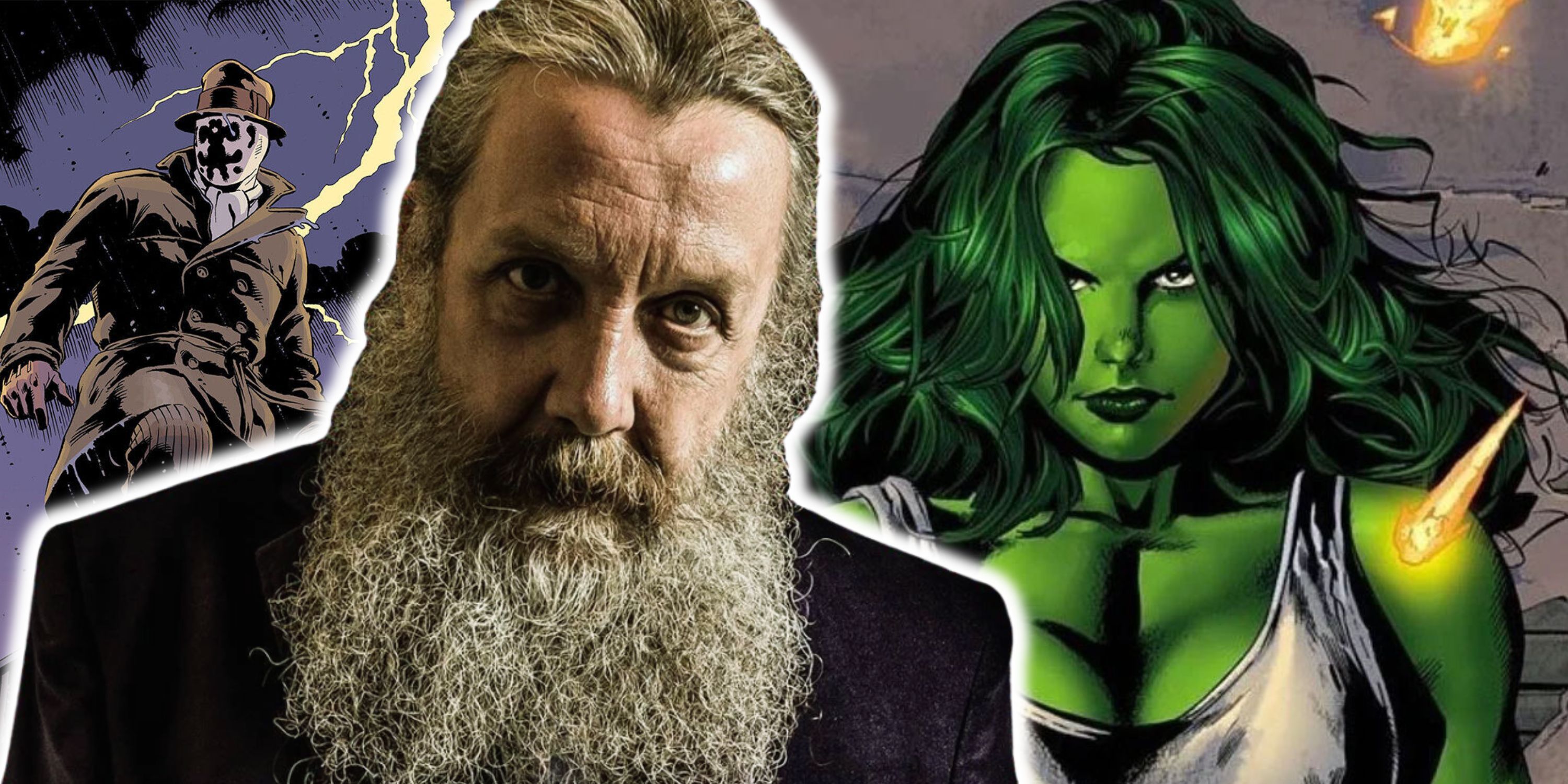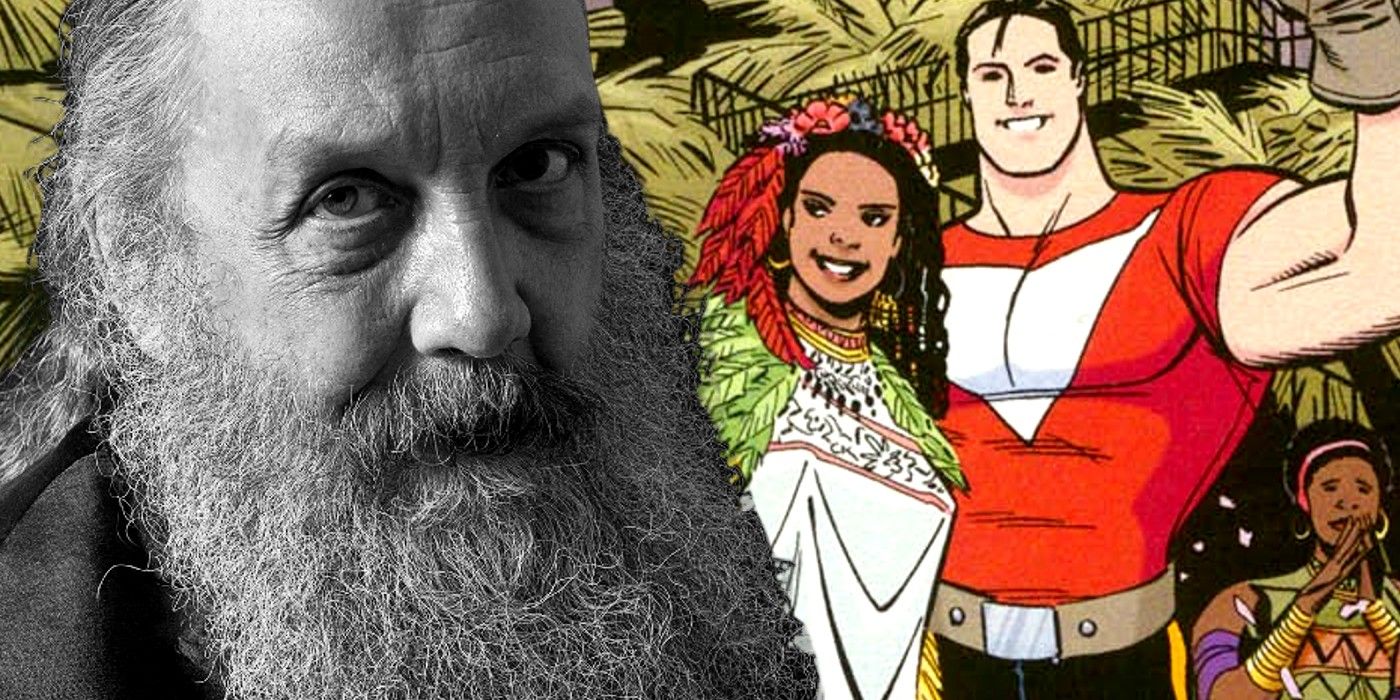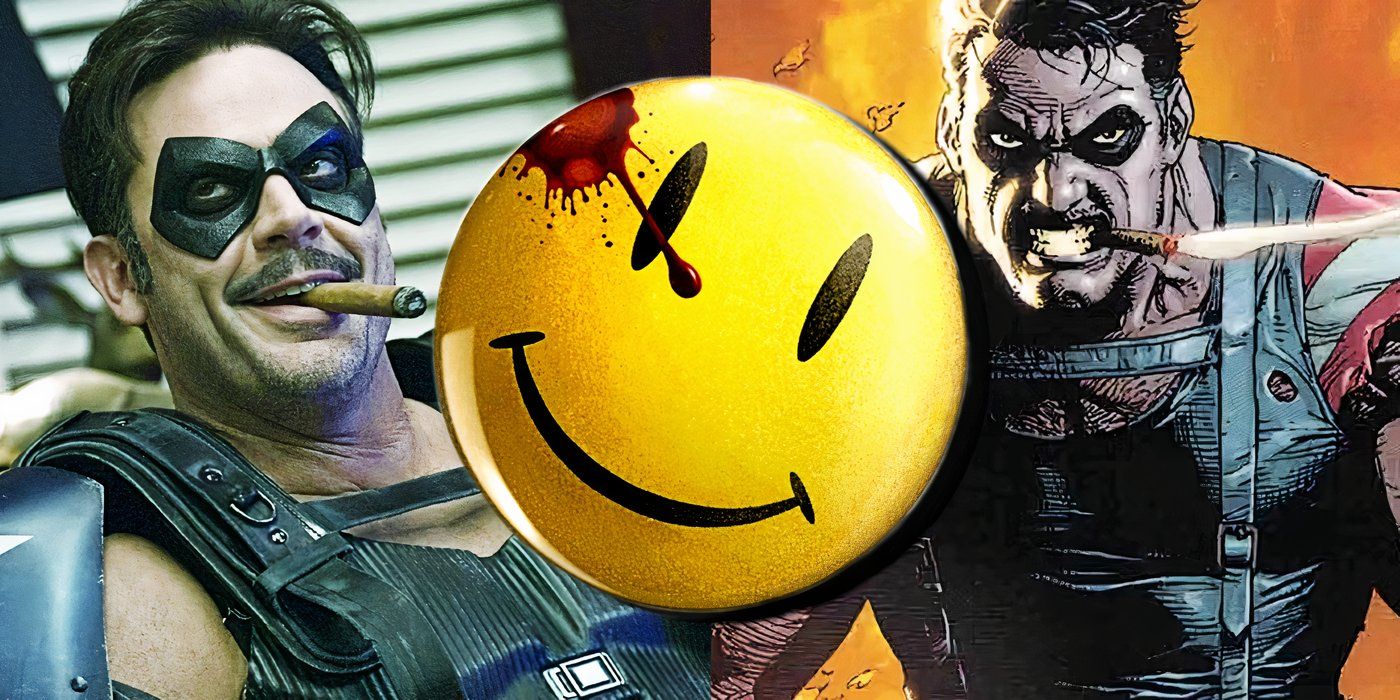10 Best Rorschach Quotes in Watchmen (And What They Reveal)
Summary
- Rorschach’s popularity stems from his unhinged nature, meant to reflect trauma.
- His identity is tied to his vigilante persona, seeing his mask as his true self.
- Despite his brutal methods, Rorschach’s final act showed a desire for noble sacrifice.
In 1986, Alan Moore and Dave Gibbons released Watchmen, a DC Comics series designed to deconstruct the superhero genre using analogs for the Charlton Comics heroes. Set in an alternate history where vigilantes participated in the Vietnam War and Richard Nixon was elected to a third term, the series combines dystopia with murder mystery. Beginning with the death of Edward Blake, it follows Rorschach through his investigation.
Watchmen elevated Rorschach into perhaps the single most iconic creation of Alan Moore’s career, something the writer strongly dislikes. However, considering that he’s the key protagonist of the series, it’s understandable why so many fans embraced him as a character. Despite his popularity, Moore intended for the vigilante to come off as an unhinged man dealing with trauma — and these quotes prove exactly that.
10 “Sometimes the night is generous to me.”
Issue #5
After recovering his mask and costume from an alleyway, Rorschach begins another patrol after heading out to continue his investigation into his mask killer theory. As he does, he stumbles across a rape in progress. As the vigilante explains, “Heard woman scream, first bubbling note of city’s evening chorus. Approached disturbance an attempted rape/mugging/both. Cleared throat. The man turned and there was something rewarding in his eyes. Sometimes the night is generous to me.”
Rorschach’s thoughts about witnessing a potential rape in progress are neither disgust nor empathy. Instead, he explains that such things are rewarding to him. In-keeping with Alan Moore’s view of Batman, Rorschach, despite what he may say, loves vigilantism. If the city’s crime were to disappear overnight, it’s likely that the antihero would be more disappointed than relieved, dismayed that he’d never know the satisfaction of inflicting violence upon a criminal again. In this sense, his crime-fighting activities are closer to personal therapy than they are an act of altruistic heroism.
9 “How much did they pay you to lie about me, w****?”
Issue #10
After being broken out of prison by Nite-Owl and Silk Spectre, Rorschach returns home for the first time since his arrest, where he recovers a spare set of clothes. While there, he’s confronted by his landlady, Mrs Shairp, who he’d previously noted for being promiscuous. With her children at her side, she tries to get the vigilante to leave, prompting him to ask about her having made false allegations against him to the press. To push her, he asks “how much did they pay you to lie about me, wh*re?”
As understandable as Rorschach’s anger may be over the false accusations, his choice of words in front of the woman’s children shows just how cruel he can be. For a character who had been in a situation similar to Shairp’s own kids, the line demonstrates a surprising lack of empathy for people who to whom he should be able to relate. Instead, he leaves the woman a wreck, slumped down on the floor with her kids.

Related
“They’re 12 Issues of She-Hulk Stapled Together”: Why Watchmen’s Alan Moore Hates the Term ‘Graphic Novel’
According to writer Alan Moore, there is a disconnect between what the term “graphic novel” implies, and what it actually delivers to readers.
8 “Good.”
Issue #6
After being incarcerated, Rorschach was put into therapy sessions with Malcolm Long, an optimistic psychiatrist who looked into his past. One of the most disturbing — and tragic — revelations was Walter Kovacs’ response in 1956 to being informed that his mother had died. His simple response? “Good.”
Rorschach’s response to the death of his mother isn’t the most surprising response considering the abuse, neglect and humiliation he suffered at the hands of his mother, who was a sex worker. This upbringing is clearly what resulted in Kovacs’ mental health problems, and set him on the road of violence which, fortunately, he channeled into vigilantism. The response is heartbreaking, and it shows how broken a man he was by his mother.
7 “Disturbed to find I had fallen asleep without removing skin from my head.”
Issue #5
After paying a visit to some of Comedian’s enemies from his list, an exhausted Rorschach heads home, where he crashes with his mask still on. Later, he’s woken up by an insistent landlady. As he gets up to answer the door, he realizes his mask is still on, stating “disturbed to find I had fallen asleep without removing skin from my head.”
The line about his mask being his very skin is an insight into how Rorschach perceives his own identity. Much like how Bruce Wayne once gave the name “Batman” as his true identity under the Lasso of Truth, Kovacs also sees his vigilante persona as the true version of himself. This is later accentuated by his demand for the police to “give me back my face!” when they remove his mask. As a psychologically broken man from years of traumatic abuse, Kovacs has thrown himself into being Rorschach, and his mask is a core part of his identity.
6 “Lying. Do it again, broken arm. Not joking.”
Issue #2
During the course of his investigation into the murder of Edward Blake, Rorschach tracks down Edgar William Jacobi, better known as Moloch. As he detains the Watchmen villain, he lists off his aliases, prompting the man to deny any knowledge of what the vigilante is saying. In response, Kovacs threatens him by saying “lying. Do it again, broken arm. Not joking.”
The threat of a broken arm for simply lying highlights the ultraviolent nature of Alan Moore’s superheroes. The line is all the more poignant considering that the writer considered Rorschach an analog for Batman, whose own methods can include brutal aggression even for low-level crime — so long as it doesn’t result in death.

Related
“I Genuinely Hadn’t Thought About It”: Watchmen’s Alan Moore Accidentally Introduced Comics’ First Interracial Marriage
Comics legend Alan Moore broke a major comics barrier without even realizing it, penning the first series to depict an interracial marriage.
5 “Soft on scum. Too young to know any better. Molly-coddled them. Let them live.”
Issue #6
During his sessions with Malcolm Long, Rorschach explained his journey from a troubled young boy into the vigilante sitting before his psychiatrist. He recounted the early days of his crime-fighting career, lamenting how he was too “soft” as a young man, and that some of his friends from the Watchmen team had turned soft too. When asked what he meant by “soft,” Kovacs explained: “Soft on scum. Too young to know any better. Molly-coddled them. Let them live.”
When considering that Moore’s writing of Rorschach was meant to reflect what a real Batman would be like, it’s clear that the writer believes such a crime-fighter would resort to murder. In his mind, anything short of murdering a violent criminal reflected a character’s “soft” approach to violence. It’s also worth remembering that this character was a commentary on Steve Ditko’s Objectivist philosophy, and Walter Kovacs is meant to reflect how a character who believes in absolute good versus evil would kill.
4 “Watched for an hour.”
Issue #6
While recounting his earlier career as a vigilante to Malcolm Long, Rorschach explained the exact moment that Walter Kovacs ceased to exist. Telling the story of the kidnapping of a girl mistaken for the child of a chemical tycoon, he explained that he traced the case back to a man named Gerald Grice. After arriving at the building where the girl had been kept, the antihero was horrified to discover that the man had dismembered and murdered the girl. He waited for Grice to return, at which point he set him on fire and watched the building burn.
As Rorschach explained to Long, “stood in street. Watched it burn. Imagined limbless felt torso inside; breasts blackening; bellies smoldering; bursting into flame one by one. Watched for an hour.” Rorschach’s reaction to his first kill, even if the man deserved it, speaks to a disturbed satisfaction within the antihero, one that compelled him to stand by and watch the flames for a full hour. This speaks to his fascination with violence, and the deep satisfaction it would come to bring him. In his mind, this was the moment Rorschach was truly born.
3 “And I’ll look down and whisper… No.”
Issue #1
The opening chapter of Watchmen is narrated by Rorschach through his journal, in which he sets the scene for his world’s version of New York City. He begins by describing the state of an animal carcass, only to segue into social commentary, stating “the streets are extended gutters and the gutters are full of blood, and when the drains finally scab over, all the vermin will drown… the wh*res and politicians will look up and shout ‘save us!’ And I’ll look down and whisper ‘no.‘”
Rorschach’s view of the world is a harsh and bleak one, a cynical outlook informed by an abusive upbringing and a vigilante career dealing with the worst of the worst. Moore created Rorschach as a parody of Steve Ditko’s Mr A and the Question, two figures informed by the Silver Age icon’s Objectivist philosophy. Moore wanted to explore this black and white morality in a sobering, grounded way, and wrote Walter Kovacs as a hard right wing character with a hateful outlook on the world around him. Ironically, it stands in stark contrast with his final act, an attempt to save the city from Veidt’s attack.

Related
Watchmen’s Most Iconic Symbol Is Reimagined in Dark Comedian Cosplay
The Comedian is a twisted character from Watchmen lore, with a new cosplay fusing the series’ iconic button symbol with Comedian’s comic design.
2 “None of you seem to understand… I’m not locked in here with you… you’re locked in here with me!”
Issue #6
After being captured by the police, Rorschach was exposed as Walter Kovacs, and was sent to prison for psychiatric evaluation. Naturally, that landed him in the same building as a cavalcade of criminals he personally got locked up, and each of them wanted to have a piece of him. After attacking an inmate with scalding hot oil from a deep fryer, his psychiatrist, Malcolm Long, relayed his words: “none of you seem to understand. I’m not locked in here with you. You’re locked in here with me.”
While this line may be thought of as the character’s most intimidating and iconic, it shows how much he relishes being able to fight criminals. Rorschach isn’t just stating that he can take care of himself, he’s effectively declaring his intent to keep fighting his fellow inmates — and wants them to be afraid. The line works, and sells the vigilante as a boogeyman for criminals but, unlike characters like Batman, shows he welcomes violence.
1 “Do It!” Confirms Alan Moore’s Explanation of Rorschach
Issue #12
According to Alan Moore, Rorschach is perhaps his most misunderstood character, with many viewing him as the most heroic of his characters. However, that was never the writer’s intention, with Moore insisting Walter Kovacs isn’t an aspirational or even noble person — he’s a traumatized psychopath with a death wish.
Moore’s assessment of his character is more than borne out in his final moments. After witnessing Adrian Veidt’s plan to use mass murder to unite the planet and seeing his friends compromise, Rorschach was confronted by Doctor Manhattan. Rather than go along with the scheme, the antihero made it clear that, if able, he would expose the truth. Kovacs knew exactly what he was doing when he invited the god-like hero’s wrath. His final command, “do it!” showed the character wanted to die — and Veidt gave him a noble enough cause to justify it.




